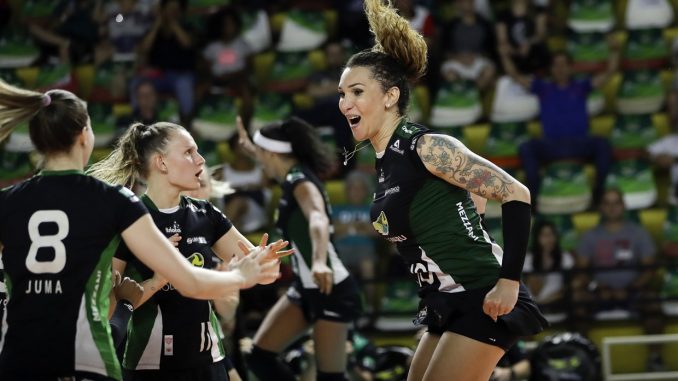
Rachel Dobkin, Staff Writer |
On Mar. 17, The Office of Equity and Inclusion hosted a common ground dialogue on transgender discrimination in sports.
The presenters, Alex Parenti, Sierra Estevez and Britney Jones, started the conversation with statistics of transgender inclusion in sports. 42.8 percent of states have a fully inclusive policy for transgender participation in their identifying gender’s sports team, 28.4 percent have restrictions on their policies, 16.4 percent have an exclusive policy and 13.4 percent have no policy on the matter.
The conversation turned into concerns over exclusionary legislation. There are 17 states attempting to pass bills banning transgender kids and teens from joining sports teams for their identifying gender. The audience was shocked to hear about a bill that Georgia tried to pass that would create a panel of physicians to examine the reproductive organs and genetic makeup of all girls on sports teams in order to ban trans girls from participating.
The audience voiced their repulsion against the bill that is not only invasive but highly inappropriate. The question was posed, why does this bill only pertain to girls? One of the presenters thought it had to do with the state wanting to impose its power onto young girls. This sexist idea of power implications is a critique among the feminist community.
Members of the audience added some nuance to the overall discussion. They felt as though this exclusion of trans people in sports came from sexist thinking like the assumption that your ability to play a sport is based on what you look like. This goes far beyond transphobia and into stereotypes of women and people’s weight.
The presenters then went into the National Collegiate Athletic Association (NCAA) policy on transgenders on their sports teams. A trans male can participate on the men’s team if they are receiving treatment with testosterone, but a trans female can only be placed on the women’s team if she has completed at least one year of testosterone suppression treatment. Not only that, but a trans male can participate on both men’s and women’s teams without testosterone treatment, yet a trans female cannot participate on a women’s team without hormone treatment. Olympic sports, which had very similar restrictions, were also mentioned.
The audience felt this was unfair and sexist towards trans women. They questioned if this was because the NCAA believed that trans women who weren’t undergoing testosterone suppression were just males who couldn’t possibly play on a women’s team because that would give them an unfair advantage. There is no evidence supporting this claim, but it was an interesting talking point among student feminists.
This critique of the NCAA then turned into a discussion of who makes these decisions. Is this a diverse group of people? No one had the answer to that, but it sparked conversation on whether a diverse group would even help the situation. Diverse individuals could either just be placed as tokens so the NCAA could say they were diverse, or these diverse people could not have the best interests at heart for trans people.
The conversation then shifted into the topic of awareness spreading. How do we start this conversation about transgender discrimination in the world of sports? One student recalled explaining trans problems to family members in ways that they can understand and sympathize with. Another student said that it starts with the tool of social media and being able to educate yourself on stories that might not be covered in mainstream media. One of the presenters said it started with events like this one.
Parenti said after the event that it is personal to them as a transgendered individual. They never see this talked about on social media, so this was a good conversation to have.
Leave a Reply